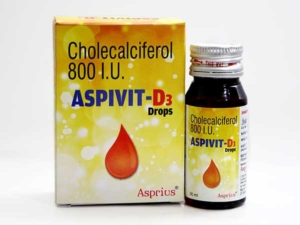
Dr. Sanjay Agrawal
Leading Pharmaceutical consultant and editor-in chief of IJMToday




Vitamin D is an important nutrient that regulates several of the body’s metabolic actions. Vitamin D is produced in the deep layers of the skin using energy from sunlight. Because the body can make vitamin D, it is not considered to be an “essential” nutrient, though a significant portion of the vitamin D needed by the human body does come from the diet.
Vitamin D, is primarily responsible for regulating the amount of calcium and phosphorus in the blood. Vitamin D also encourages the formation of bone tissue and is known to stimulate the production of cells in the immune system.
A growing body of research suggests that vitamin D may also play a role in blood pressure regulation and heart health. It is known, for example, that cases of high blood pressure increase during the winter and in places that are further from the equator — both are situations where a decrease in available sunlight leads to lower vitamin D production.
Can Vitamin D Prevent High Blood Pressure?
Maybe – the evidence is not entirely clear. Though the role of vitamin D in blood pressure and heart health has been the topic of considerable investigation since at least the mid-1980s, the conclusions of the research studies are difficult to interpret. While it is known that both the blood vessels and the heart have large numbers of vitamin D receptors – which means that vitamin D is providing some function in regulating these tissues – figuring out what these receptors do has been difficult. Studies on the action of vitamin D sometimes appear to contradict each other, and sometimes they yield data that cannot be accurately interpreted.
One study found that administering vitamin D to older adults with existing high blood pressure caused both the systolic blood pressure and diastolic blood pressure to decrease. The same study also found that giving both vitamin D and calcium together caused even larger decreases in both systolic and diastolic blood pressure. These data suggest that vitamin D and calcium somehow work together to cause a reduction in blood pressure and that high levels of calcium promote the blood pressure reducing action of vitamin D. Curiously though, when the study participants were examined more carefully, it was found that this only worked in people who had relatively high calcium levels to start. In people who had low calcium levels at the beginning, neither vitamin D nor vitamin D plus calcium were very effective at lowering blood pressure.
These findings were made even more confusing by a later study that seemed to show that high levels of calcium are in some way linked to the risk of developing cardiovascular problems, including high blood pressure. This study examined a moderately sized group of patients and found that calcium levels, glucose levels, and cholesterol levels all seemed to rise together. That is, people with high cholesterol – an important cardiovascular risk factor – also seemed to have high calcium levels. The same study also showed a link between high calcium and high blood pressure. As calcium levels rose, blood pressure tended to rise as well.
Thinking about these two studies together is a good example of why the vitamin D picture is still unclear. If high calcium levels are associated with high blood pressure, then why does giving some people who have high blood pressure even more calcium (plus vitamin D) cause blood pressure to fall?
Recently, researchers have been able to piece together some answers to these puzzling questions. The apparently contradictory data found in many studies of vitamin D may be a result of altered kidney function. One important study showed that the action of vitamin D appears to change based on kidney function and the action of the renin-angiotensin system. Since people with high blood pressure may develop altered kidney function, and are more likely to have a malfunctioning renin-angiotensin system, the earlier research might actually not be contradictory at all.
While it is clear that vitamin D plays some role in the regulation of blood pressure, and that people with low levels of vitamin D are more likely to develop cardiovascular problems, the exact nature of these complex relationships must still be worked out before the picture is complete.
Should THE PATIENT Take Oral Vitamin D Supplements?
No. There is no evidence suggesting that oral vitamin D supplementation provides any protective effect against high blood pressure or heart disease. The evidence so far suggests that dietary sources of vitamin D are sufficient to avoid the “low vitamin” conditions that have been associated with disease. For normal, healthy adults, a well-balanced diet can provide an adequate supply of vitamin D. People who have a documented vitamin D deficiency may require oral supplementation, but this is not for cardiovascular reasons.
The recommended daily allowance of vitamin D is:
- Younger than 50: 5 micrograms / 200IU
- 50-70 years old: 10 micrograms / 400IU
- More than 70 Years old: 15 micrograms / 600IU
What are Good Dietary Sources of Vitamin D?
Vitamin D is found in many foods, and a number of common food products are “enriched” with vitamin D. Milk, cereal, and baking flour are all products that contain “added” vitamin D. Some good sources of vitamin D include:
- Salmon 4oz: 400IU
- Milk 1cup: 50-75IU
- Tuna 3oz: 200IU
- Eggs: 20IU each
- Mushrooms 3oz (half cup): 2700IU (organic, uv treated)
These foods are all a part of a healthy, balanced diet.




